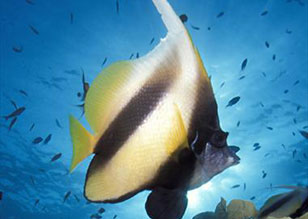Safeguarding Ocean Earth
 Rio+20: It’s Time to Turn the Tide for Our Ocean
Rio+20: It’s Time to Turn the Tide for Our OceanOur ocean is critically important. Its water, which makes up 70 percent of the planet, supports a wide variety of marine life, communities, and jobs. Yet we treat it with too little respect. Although it has proved to be resilient, the ocean can keep giving us only so much.
This June, on the 20th anniversary of the first Earth Summit in Rio de Janeiro, leaders from around the world will return to the Brazilian city for the United Nations Conference on Sustainable Development (Rio+20) to renew political will to drive sustainable development forward. The agenda for this Rio+20 meeting is broad and ambitious, but now it’s time to make the ocean count! It has been left off the priority list for too long, and it shows. Leaders can correct our course to ensure our ocean can sustain marine and human life in the decades to come.
Did you know that:
Almost no one is in charge of the high seas. This area includes all of the ocean except the 200-mile area bordering coastal countries. The high seas are increasingly under threat.
Eighty-five percent of global fish stocks are fully exploited or worse. This is the highest percentage on record—a scary thought when you consider that the world’s human population will jump from 7 billion to 9 billion in the next 40 years.
Strong proposals have been made for improving treatment of our ocean resources, but they are in danger of being watered down. Some governments are actually moving backward, even from decisions that were made just 10 years ago at the 2002 Earth Summit in Johannesburg.
If we carry on with business as usual, the bountiful ocean that we now know may cease to exist. So let’s make 2012 the turning point for our ocean.
Ten steps that decision makers must take to save our ocean:
1. Negotiate a new agreement for the protection of biodiversity on the high seas.
2. Require science-based fisheries management, stop overfishing, and restore depleted fish stocks.
3. Reduce the number of boats currently fishing, particularly on the high seas.
4. Eliminate harmful fisheries subsidies.
5. End deep-sea bottom trawling and other destructive fishing practices.
6. Increase the amount of ocean that is protected in national waters and on the high seas.
7. Recognize and combat illegal fishing as criminal activity.
8. Require U.N. oversight of regional fisheries management organizations.
9. Prohibit the fishing of threatened or endangered species.
10.Improve monitoring, control, and surveillance of fishing vessels on the high seas and within the national waters of countries.
You can return to the main Market News page, or press the Back button on your browser.

